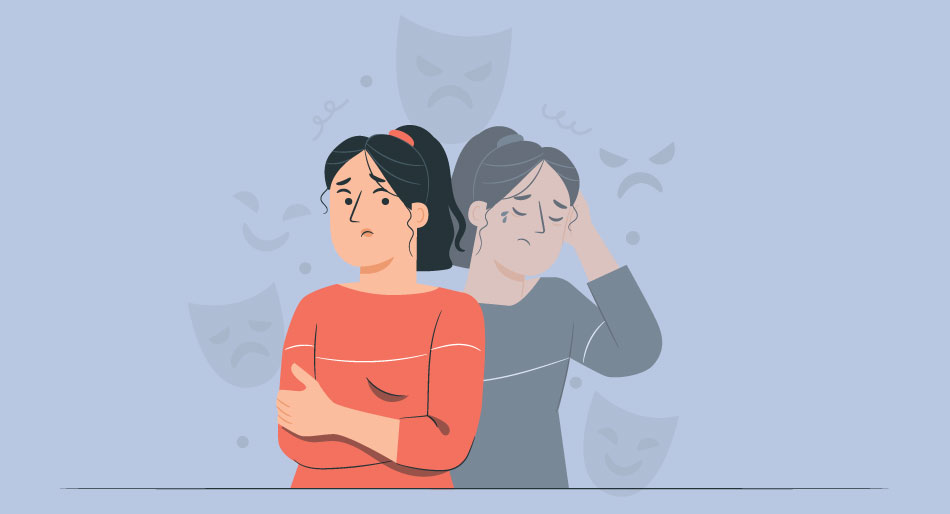The Neglection of Women’s Mental Health Issues

Psychological issues affect everyone and they can only be handled if they are recognized timely. In Pakistan, almost everyone – especially women – is vulnerable to psychological difficulties and is fighting internal struggles. Surprisingly, 50% of Pakistani women were categorized as distressed women; despite the fact that they never had any formal mental diagnosis. Depression or anxiety affected 28% of women, personality or adjustment problems affected 5-7%, and other disorders affected 17%. A research on stress and psychological problems in Pakistan Hindukush mountains revealed a 46% incidence of depression and anxiety in women compared to 15% in males. Many women are unaware of their mental illness and start suspecting that they’re under a magic spell.
The first and foremost cause of this is the tradition of numerous responsibilities placed upon women; the expectations from them in Pakistan puts severe pressure on women. This pressure results into anxious behavior; leading to stress. The identifying factors make it easy to recognize the problem to avoid the state of depression. It is worst that Pakistani people have really made stress a normal thing. With high levels of stress, women keep on multitasking at home. With their inner battles, they continue performing their roles related to caregiving and household responsibilities. This normalization of mental illness can make it harder to recognize when stress becomes devastating and converted into mental illness.
Another risk factor in non-recognition of mental problem is the stigma surrounding mental health issues. Women may hesitate to seek help due to fear of discrimination or humiliation. Cultural norms of being dependent and misconceptions about mental health results in un-addressed issues. In some areas, especially in rural areas, the awareness about mental health results is non-recognition of the signs of mental health issues. They are unaware of places or persons to get help. On the other hand, in urban areas, women having education seek economic empowerment. Many women are talented and skilled but they remain untapped due to limited access resources and opportunities. This frustration leads to anger. Their unfulfilled potential can result in sense of hopelessness.
Read More: Advancing Women’s Rights In Pakistan: A Doctor’s Perspective
There is a dire need to recognize mental health issues among women. Family members must keep an eye on the behavioral changes. They need to pay attention that if the lady is moving towards social withdrawal and having mood swings. People at home or in social circle need to pay attention to emotional signs such as excessive worry, cry or hopelessness. Friends and family must pay attention to their feelings and listen them actively.
Additionally, they must observe physical symptoms like unexplained aches and find the cause and duration of these signs. It’s necessary to address the problem with keen observance and encourage women to communicate. In case of finding any women falling in risk factors, near ones must offer support; listen them without judgment. Seeking help from Psychologist is essential. Rather than normalizing depression, there’s a need to normalize visits to psychologists. Better not to forget that only a professional can recognize the illness; suggest measures or coping strategies. Delayed intervention are hurdles in the way of recovery from mental health illness. Early recognition and treatment is necessary to cope the problem and get healthy women in society.
Reference: https://www.ncbi.nlm.nih.gov/pmc/articles/PMC1414670/
The writer is a teacher with a Masters in English. She is a blogpost writer in The News & DailyTimes Newspapers and a Kindle Author.

Very relatable article and answers to many questions